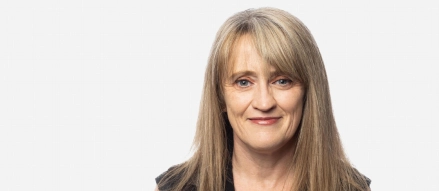
COVID-19: Working from home for employees – a new reality, with tax benefits
THE COVID-19 IMPACT
COVID-19 has fundamentally changed the way many organisations currently operate. As businesses around Australia mandate or encourage staff to work from home, this has resulted in higher expense bills for most taxpayers. In addition to the existing guidelines in place such as the fixed rate method (i.e. claiming 52 cents per work hour) and the actual cost method, the ATO has announced a new, temporary simplified method to make it easier to claim deductions for working from home expenses due to COVID–19.
We discuss the general topic of working from home expenses and the “new shortcut method” further below.
WORKING FROM HOME
An employee who works from home is able to claim deductions for expenses relating to work. This can include home office running expenses such as additional heating, cooling and lighting and the work-related proportion of the decline in value (depreciation) of office equipment, phone and internet expenses. In most cases, there are no capital gains tax (CGT) implications.
In limited circumstances where an employee’s home is also their principal place of business, in addition to running expenses, occupancy expenses may also be claimed. This includes rent, mortgage interest, property insurance, land taxes and rates. However, in the event of future sale of the home, there may be CGT implications for the portion that is used as a place of business (i.e. the CGT main residence exemption will not apply to this portion).
Eligibility
To be eligible to claim tax deductions for working from home, the following must be satisfied:
- The taxpayer must have spent the money themselves (and not have been reimbursed by their employer),
- The expense must be directly related to earning income and fulfilling employment duties (and not just carrying out minimal tasks such as occasionally checking emails or taking calls), and
- There must be a record to substantiate the claim.
Where a taxpayer receives an allowance (as opposed to a reimbursement) by their employer to cover these working from home expenses, this allowance must be included as income in their tax return.
To claim tax deductions for running expenses including lighting, heating, cooling and cleaning, the taxpayer must have a dedicated work area in their home.
Expenses that can be claimed
The additional running expenses an employee would typically incur that can be claimed as a tax deduction, are as follows:
- Electricity expenses associated with lighting, cooling or heating a dedicated work area and running items used for work (e.g. electronic devices);
- Cleaning expenses for a dedicated work area;
- Phone and internet expenses;
- Computer consumable expenses (e.g. printer ink and paper);
- Stationery expenses; and
- Home office equipment expenses, including computers, printers, phones, furniture and furnishings – a claim either for the cost (for items valued up to $300) or a claim for the depreciation (for items costing $300 or more).
Where any expenses are used partly for private purposes, only the additional expenditure in relation to home office use can be claimed.
Fixed rate method
A taxpayer who has a dedicated work area may use the fixed rate method to claim 52 cents per hour for each hour of home office use. The fixed rate method is an alternative to claiming actual expenditure for heating, cooling, lighting, cleaning, and the depreciation of furniture.
Other deductions such as for phone and internet expenses and the depreciation of home office equipment can be claimed in conjunction with the 52 cents per hour rate.
Expenses that cannot be claimed
Taxpayers working from home due to COVID-19 will not be able to claim occupancy expenses (as previously mentioned) and those relating to amenities such as tea, coffee, milk and other general household items that an employer may otherwise have provided at work.
ATO’S ‘SHORTCUT’ METHOD
From 1 March 2020 until at least 30 June 2020, under the shortcut method, taxpayers can now claim 80 cents per work hour for all their additional running expenses.
Notably, multiple individuals within the same house can each claim the 80 cents per hour rate and the usual requirement for the dedicated work area has been removed for deductions claimed using this method.
Under the shortcut method, a record of the hours worked at home as a result of COVID-19 is required, for example timesheets or diary notes.
In contrast, where a taxpayer applies the fixed rate method and / or the actual cost method, a record of all of the following must be kept to be able to substantiate the claim:
- Number of actual hours worked from home;
- A detailed record of a four-week representative period to demonstrate the usual pattern of working at home;
- Calculation of the depreciation of depreciating assets;
- Proof of expense (e.g. receipts and utility bills); and
- Apportionment details for expenses split between work related use and private use / use by others.
The 80 cents per hour that can be claimed under the shortcut method is inclusive of all running expenses, and no additional running expense deductions (eg phone, internet and depreciation of equipment) can be claimed in conjunction with this method. Some taxpayers who qualify to use the 52 cents per hour fixed rate method may be better off claiming the 52 cents per hour rate plus additional expenditure such as phone, internet, and the depreciation of computer equipment.
The ATO has simplified, online tools such as the ‘Home Office Expenses Calculator’ and the ‘Depreciation and Capital Allowances Tool’. However, we caution against complete reliance on these tools.
If you have any questions or are seeking further guidance, we recommend that you contact your usual Mazars advisor or alternatively, one of our Tax experts.
Brisbane – Jamie Towers | Melbourne – Evan Beissel | Sydney – Gaibrielle Cleary |
+61 7 3218 3900 | +61 3 9252 0800 | +61 2 9922 1166 |
Published: 06/05/2020
All rights reserved. This publication in whole or in part may not be reproduced, distributed or used in any manner whatsoever without the express prior and written consent of the Mazars, except for the use of brief quotations in the press, in social media or in another communication tool, as long as Mazars and the source of the publication are duly mentioned. In all cases, Mazars’ intellectual property rights are protected and the Mazars Group shall not be liable for any use of this publication by third parties, either with or without Mazars’ prior authorisation. Also please note that this publication is intended to provide a general summary and should not be relied upon as a substitute for personal advice. Content is accurate as at the date published.


